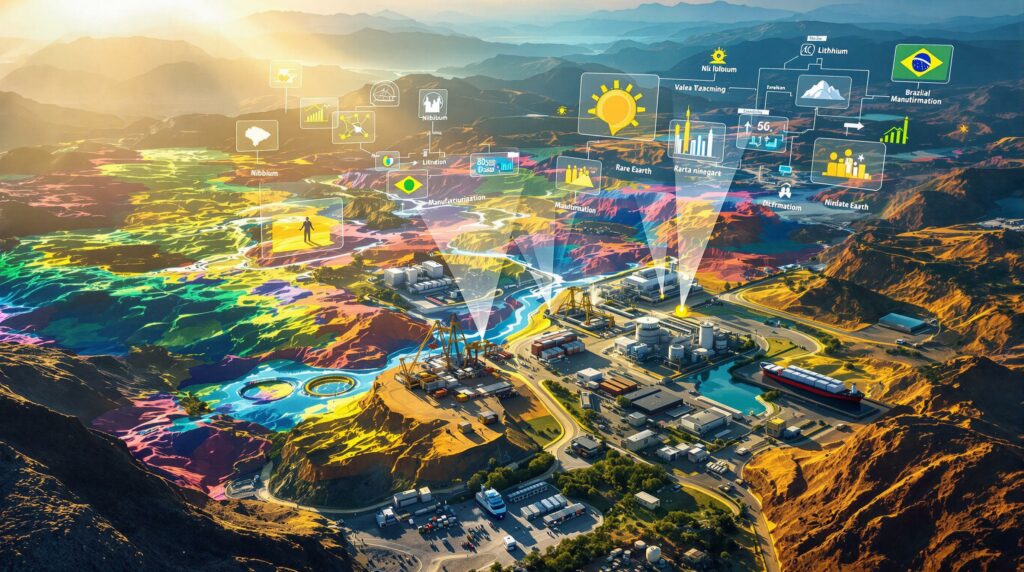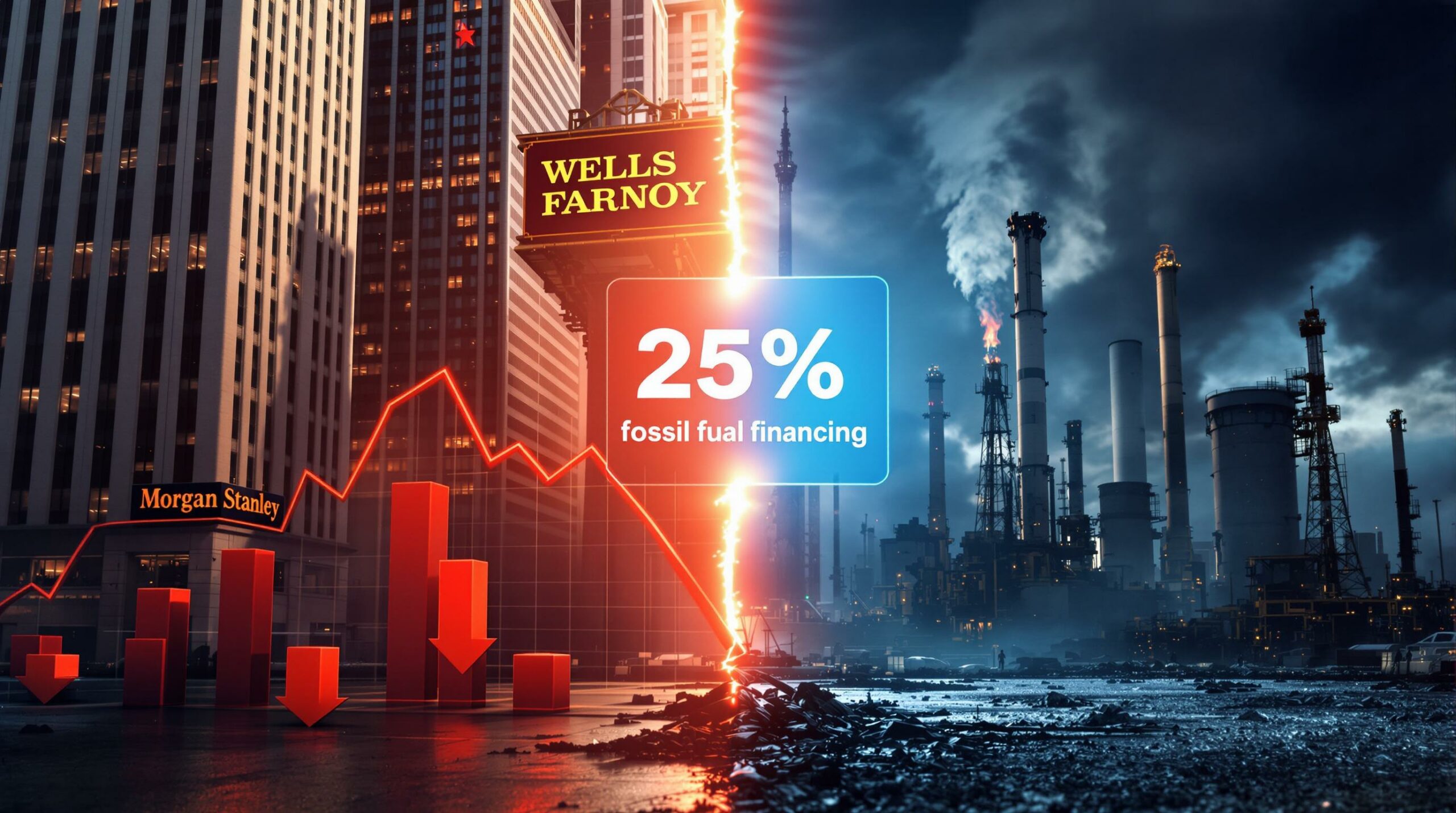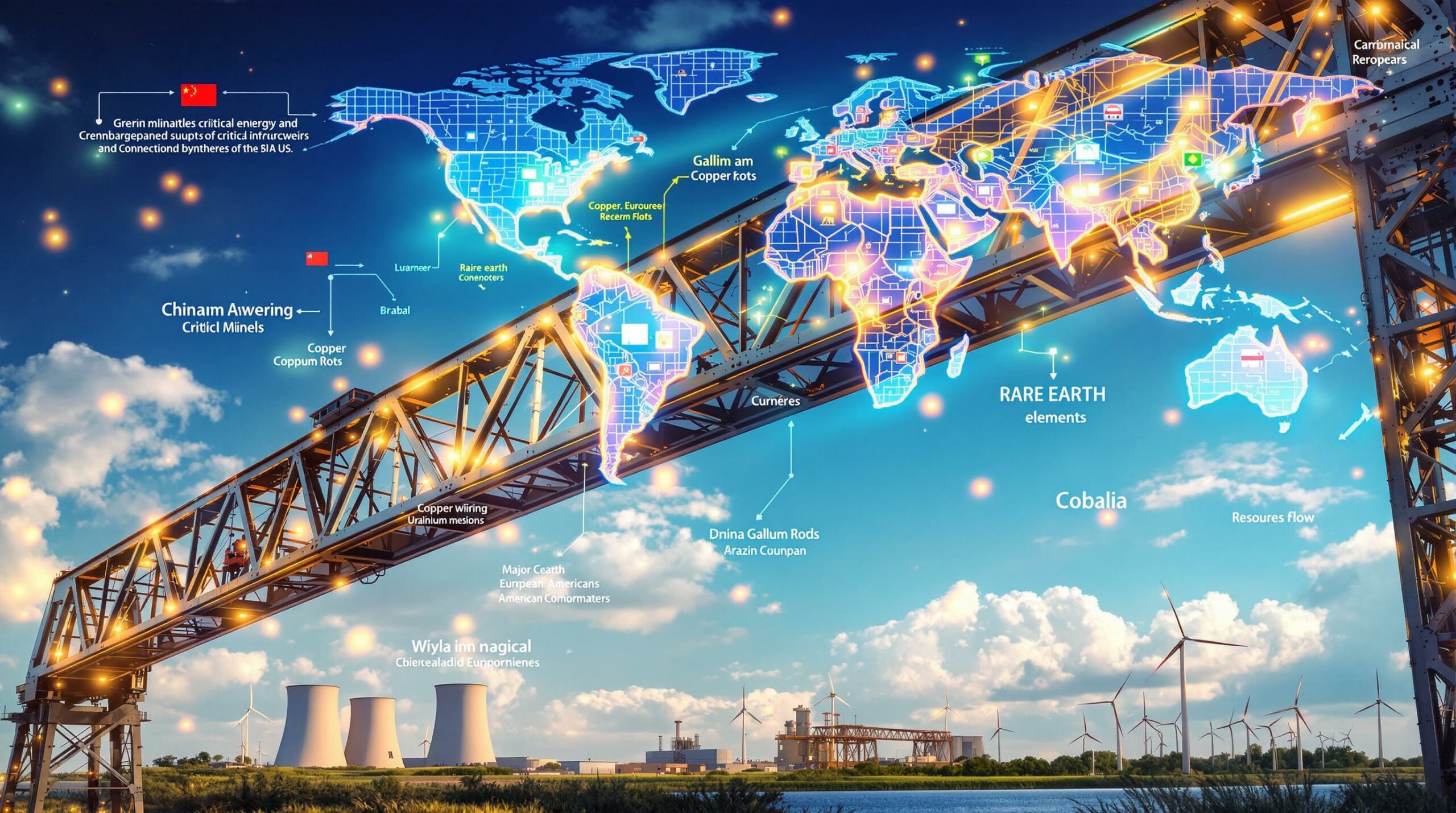Brazil's Strategic Minerals Policy: Creating National Sovereignty Through Value Addition
Brazil is taking bold steps to redefine how it manages its vast mineral wealth. Under President Luiz Inacio Lula da Silva's leadership, the country is implementing a comprehensive national policy for strategic minerals that prioritizes domestic value addition over raw material exports. This shift represents a fundamental change in Brazil's resource management approach, positioning mineral assets as tools of national sovereignty rather than simply commodities for export.
What is Brazil's New Strategic Minerals Policy?
In August 2025, President Lula announced plans to establish a new national strategic minerals policy centered on the concept of "national sovereignty." This policy represents a significant departure from Brazil's historical approach to mineral resource management.
The policy's cornerstone is preventing the export of raw minerals without domestic value addition—a practice that has limited Brazil's economic gains from its natural resources for decades. As President Lula emphasized during the announcement: "We won't allow what happened in the last century to happen again, where Brazil exports raw minerals and then buys products with very high added value. We want to add value in Brazil."
Key Policy Objectives
The strategic minerals policy includes several ambitious goals:
- Establishing mineral resources as critical assets of national sovereignty
- Creating comprehensive mapping of Brazil's mineral wealth (currently incomplete)
- Requiring domestic processing and manufacturing before export
- Positioning Brazil as a leader in energy transition materials and technologies
- Forming a national council on mineral materials and standards to oversee implementation
The policy aims to transform Brazil from a primary resource exporter into a manufacturer of high-value products, particularly those essential for clean energy technologies and other strategic applications.
Why is Brazil Changing Its Approach to Strategic Minerals?
Historical Context of Resource Exploitation
Brazil's decision to revamp its minerals strategy stems from decades of economic underperformance in the mining sector. Historically, the country has exported vast quantities of raw minerals only to import finished products at significantly higher costs—a pattern that has limited economic development and job creation.
This extractive model has resulted in Brazil capturing only a fraction of the potential value from its mineral resources. While mining operations created some employment and tax revenue, the highest-value activities in the supply chain—processing, manufacturing, and technology development—have occurred elsewhere.
President Lula's administration views this pattern as economically unsustainable and counter to national interests, especially as demand for critical minerals continues to rise globally.
Geopolitical Considerations
The policy announcement comes amid significant geopolitical tensions that highlight the strategic importance of critical minerals:
- A new 50% tariff imposed on U.S. imports from Brazil has strained bilateral relations
- Former President Jair Bolsonaro is under house arrest and standing trial on charges of plotting a coup to overturn his 2022 electoral defeat
- U.S. President Donald Trump, seen as a Bolsonaro ally, has criticized what he calls "persecution" of Brazil's former leader
- Trump has actively pursued strategies to secure U.S. supplies of critical minerals, expressing concerns about China's dominant market position
- Global competition for critical minerals has intensified, with major powers implementing national strategies to secure supply chains
These factors have accelerated Brazil's push to assert greater control over its mineral resources as tools of economic and political leverage in an increasingly competitive global environment.
How Will the National Council on Mineral Materials Work?
Structure and Responsibilities
The newly proposed national council on mineral materials and standards will serve as the central authority overseeing Brazil's strategic minerals sector. While specific operational details are still emerging, the council will be tasked with several critical functions:
- Conducting comprehensive mapping of Brazil's mineral resources, addressing what President Lula described as a lack of "complete mapping of its mineral wealth"
- Establishing standards for extraction, processing, and manufacturing
- Developing regulations to ensure domestic value addition before export
- Coordinating between government ministries, mining companies, and manufacturing sectors
- Safeguarding Brazil's control of its mineral wealth through policy implementation
The council represents a significant institutional development in Brazil's minerals governance, creating a centralized authority with broad oversight of the sector's development.
Business Impact Assessment
Despite the policy's ambitious scope, President Lula has sought to reassure the business community, stating that "businesses will not face difficulties following the council's creation." This suggests the policy aims to create predictable investment conditions while ensuring national benefits.
The administration appears to be pursuing a balanced approach that encourages continued investment in the mining sector while redirecting more processing and manufacturing activities to domestic facilities. This likely means:
- New requirements for domestic processing before export
- Incentives for establishing processing facilities within Brazil
- Possible joint venture requirements between mining companies and manufacturers
- Focus on technology transfer to build Brazilian technical capabilities
These changes will require significant adjustment from companies accustomed to exporting raw materials, but may create new opportunities for those willing to invest in Brazil's downstream industries.
What Strategic Minerals Does Brazil Possess?
Critical Mineral Inventory
Brazil holds significant deposits of minerals that are increasingly essential for clean energy technologies and other strategic applications. While President Lula acknowledged that Brazil "lacks a complete mapping of its mineral wealth," the country is known to possess:
- Niobium: Brazil controls approximately 85% of the world's niobium reserves, used in high-strength steel alloys and superconductors
- Lithium: Growing reserves in the states of Minas Gerais and Ceará, critical for batteries and energy storage
- Rare Earth Elements: Deposits throughout the country, essential for permanent magnets in wind turbines and electric vehicles
- Graphite: Significant deposits of this critical battery material
- Bauxite: The world's third-largest reserves, used for aluminum production
- Iron ore: Massive high-grade deposits that could support domestic steel production
- Copper, Nickel, and Cobalt: Important deposits of these critical minerals reserve
The national mineral mapping initiative is expected to reveal additional strategic mineral deposits, potentially reshaping global supply chain dynamics for energy transition materials.
Competitive Advantages
Brazil possesses several advantages that position it well for developing a value-added minerals strategy:
- Diverse geological formations offering multiple mineral types within proximity
- Established mining infrastructure and technical expertise
- Abundant renewable energy resources that could power processing facilities
- Relatively stable political environment compared to some mineral-rich regions
- Strategic positioning for supplying both Western and Eastern markets
- Existing industrial base that can be adapted for new manufacturing
These factors create a foundation for Brazil's ambition to move up the value chain in critical minerals processing and manufacturing.
How Does This Policy Compare to Global Mineral Strategies?
International Approaches to Critical Minerals
Brazil's new policy enters a global landscape where major powers are actively implementing their own strategic minerals strategies:
-
United States: Under Trump's administration, the U.S. has focused on securing critical mineral supplies through both domestic production and international partnerships. As noted in the Reuters report, Trump has been "striking deals with Ukraine to secure critical minerals in exchange for defense help."
-
China: Has established a dominant position in processing and manufacturing of critical minerals, particularly rare earth elements. The Economic Times article referenced China's "near-total control of the industry," highlighting the concentration of processing capacity that has concerned other nations.
-
European Union: Has pursued strategic autonomy initiatives to reduce dependency on external suppliers, particularly for materials essential to clean energy technologies and digital infrastructure.
-
Australia: Maintains an export-oriented approach to its substantial mineral resources, though with growing focus on developing downstream processing capabilities.
Comparative Analysis
Brazil's approach combines elements of resource nationalism with industrial development goals. Unlike more extreme nationalization policies seen in some resource-rich countries, Brazil appears to be focusing on value addition rather than simply restricting exports or foreign investment.
The policy is more interventionist than Australia's market-oriented approach but less restrictive than policies in countries that have fully nationalized their mining sectors. It seeks to balance continued foreign investment with requirements for domestic processing and manufacturing.
Brazil's strategy most closely resembles elements of China's successful model of leveraging raw material access to build manufacturing capabilities, though with different political and economic contexts.
What Are the Economic Implications of Value Addition?
Potential Economic Benefits
The shift from raw material exports to domestic processing and manufacturing offers several potential economic advantages:
- Higher-value exports: Processed minerals and manufactured components command significantly higher prices than raw materials
- Job creation: Processing and manufacturing typically generate more employment than extraction alone
- Skill development: Building technical expertise in processing and manufacturing technologies
- Economic diversification: Reducing dependence on commodity price fluctuations
- Technology development: Creating opportunities for innovation in processing methods and applications
- Tax revenue: Capturing more of the value chain within Brazil's tax jurisdiction
President Lula specifically highlighted the economic disparity created by the traditional model: "Brazil exports raw minerals and then buys products with very high added value." The new policy aims to capture more of this value domestically through mineral beneficiation insights.
Implementation Challenges
Despite its potential benefits, implementing a value-addition strategy for minerals presents significant challenges:
- Capital requirements: Building processing facilities requires substantial investment
- Technical expertise: Developing the specialized knowledge needed for advanced processing
- Energy infrastructure: Ensuring sufficient reliable energy for processing operations
- Regulatory framework: Creating effective but not overly burdensome regulations
- Market competition: Competing with established global processing centers
- Product specifications: Meeting international standards for processed materials
- Environmental considerations: Managing increased industrial activity sustainably
Successfully addressing these challenges will require coordination between government policies, private sector investment, and educational institutions to build the necessary capabilities.
How Might This Policy Affect Global Markets?
Supply Chain Impacts
Brazil's strategic shift could significantly affect global mineral supply chains, particularly for materials essential to clean energy technologies:
- Supply adjustments: Reduced availability of certain raw materials as Brazil redirects them to domestic processing
- Price effects: Potential price increases for raw materials as export volumes decrease
- New trade patterns: Development of new trading relationships focused on processed materials rather than raw commodities
- Manufacturing relocation: Possible movement of manufacturing facilities to Brazil to secure material access
- Strategic partnerships: Formation of new alliances between Brazil and countries seeking secure mineral supplies
The policy's implementation timeline will determine how quickly these effects materialize and how disruptive they might be to established supply chains.
Investment Considerations
For companies involved in Brazil's mining sector, the policy creates both challenges and opportunities:
- Operational adjustments: Mining companies may need to develop or partner with processing facilities
- Investment requirements: New capital expenditures for processing infrastructure
- Joint ventures: Potential partnerships between miners and manufacturers
- Regulatory compliance: Adapting to new requirements for domestic value addition
- Market access: Potential advantages for companies that adapt early to the new model
The policy's success will partly depend on Brazil's ability to maintain an attractive investment environment while implementing these new requirements.
What Does This Mean for Brazil's Energy Transition Role?
Strategic Positioning
President Lula has explicitly connected the strategic minerals policy to Brazil's ambitions in the global energy transition, stating that the national council will allow Brazil "to become a global leader in the energy transition."
This positioning reflects Brazil's recognition of the critical role minerals play in clean energy technologies:
- Lithium, nickel, and cobalt for batteries
- Rare earth elements for permanent magnets in wind turbines and electric motors
- Copper for electrical infrastructure
- Silicon for solar panels
- Various minerals for hydrogen production and fuel cells
By developing domestic processing and manufacturing capabilities for these materials, Brazil aims to move beyond being a raw material supplier to become a manufacturer of clean energy components and technologies.
Competitive Advantages
Brazil possesses several advantages that could support this energy transition ambition:
- Renewable energy resources: Abundant hydropower, solar, and wind potential to power processing facilities with clean energy
- Growing domestic market: Increasing clean energy deployment within Brazil creating local demand
- Regional leadership: Potential to serve as a manufacturing hub for Latin America
- Mineral diversity: Access to multiple critical minerals within one jurisdiction
- Industrial base: Existing manufacturing capabilities that can be adapted and expanded
These factors could help Brazil overcome the significant challenges involved in establishing new processing and manufacturing industries.
Expert Perspectives on Brazil's Approach
Supportive Views
Proponents of Brazil's strategic minerals policy highlight several potential benefits:
- Economic development: Value addition creates more sustainable economic growth than raw exports
- Supply chain resilience: Diversified processing locations reduce global supply chain vulnerabilities
- National security: Greater control over strategic resources enhances economic sovereignty
- Technology development: Manufacturing capabilities drive innovation and technical advancement
- Environmental standards: Domestic processing allows Brazil to implement its own environmental controls
As President Lula stated, "Few countries in the world have the opportunity that Brazil has in this area," highlighting Brazil's potential competitive advantage in strategic minerals.
Critical Perspectives
Critics and skeptics raise several concerns about the policy's implementation:
- Investment deterrence: Overly restrictive policies could discourage foreign investment
- Implementation capacity: Questions about Brazil's ability to develop competitive processing facilities quickly
- Economic efficiency: Forced domestic processing might not be cost-competitive in all cases
- Trade retaliation: Potential for trade conflicts if other countries view the policy as protectionist
- Timeline realism: Developing processing capabilities requires years of investment and development
The policy's success will depend on finding the right balance between asserting national control and maintaining an attractive investment environment. Furthermore, understanding the mining industry evolution and utilizing a comprehensive mineral deposit guide will be crucial for Brazil's strategy implementation.
Disclaimer: This article contains forecasts and speculation about the future impacts of Brazil's strategic minerals policy. Economic outcomes, market impacts, and implementation timelines are subject to significant uncertainty. Readers should consult multiple sources and expert opinions before making investment or business decisions related to Brazil's minerals sector.
FAQ: Brazil's Strategic Minerals Policy
What specific minerals will be covered under the new policy?
While the policy announcement didn't specify all minerals considered "strategic," it will likely include critical minerals essential for the energy transition such as lithium, niobium, rare earth elements, graphite, copper, nickel, and cobalt. Brazil's significant niobium resources—representing approximately 85% of global reserves—will almost certainly be included given their strategic importance for advanced steel alloys and superconductors.
How will this policy affect existing mining operations?
Existing operations will need to adapt to new requirements for domestic processing or partnerships with local manufacturers. While specific implementation details haven't been announced, President Lula has indicated that "businesses will not face difficulties following the council's creation," suggesting a pragmatic approach to implementation that allows time for adjustment.
Will this policy restrict foreign investment in Brazilian mining?
Rather than restricting investment entirely, the policy appears focused on changing investment terms to ensure more value addition occurs within Brazil. This could involve joint venture requirements, domestic processing commitments, or technology transfer agreements. The government seems to be seeking continued foreign investment while directing it toward value-added activities.
How does this relate to Brazil's climate commitments?
The policy positions Brazil to play a larger role in manufacturing clean energy technologies, potentially aligning economic development with climate goals. By processing critical minerals domestically and manufacturing components for renewable energy and electric vehicles, Brazil could reduce the carbon footprint of mineral supply chains while supporting global decarbonization efforts.
Want to Spot the Next Major Mineral Discovery?
Get instant notifications on significant ASX mineral discoveries powered by Discovery Alert's proprietary Discovery IQ model, helping you identify actionable opportunities ahead of the broader market. Understand why historic discoveries can generate substantial returns by visiting Discovery Alert's dedicated discoveries page and begin your 30-day free trial today.




